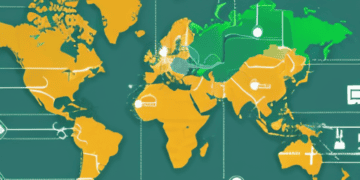In the modern business landscape, addressing Scope 3 emissions stands as a significant challenge for numerous organizations. These emissions, which often represent the largest portion of a company’s carbon footprint, extend beyond direct operations to encompass the entire supply chain. A recent analysis in Deloitte’s Sustainability Action Report highlights that a vast majority of companies, approximately 86%, encounter difficulties in merely measuring these emissions, not to mention the complexities involved in implementing reduction strategies.
The intricacies of Scope 3 emissions stem from their extensive reach, enveloping activities from raw material acquisition to the end use of products by consumers. This broad spectrum makes tracking and mitigating these emissions an intricate task. Experts like Dave Rimkus, Associate Director of Supply Chain Renewables at Schneider Electric; Vishnu Nair, Head of Operations for Zeigo Activate; and Jo Borras from CleanTechnica, shed light on this complexity and explore potential avenues for action.
Vishnu Nair articulates that while the path to decarbonizing the supply chain is fraught with challenges, the adoption of specialized software can pave the way for a more manageable approach. The primary goal of supply chain sustainability efforts is to minimize emissions, a target that hinges on the active participation of suppliers. Software solutions can play a crucial role in facilitating effective communication and collaboration with suppliers, fostering a culture of engagement and commitment to sustainability goals.
The conversation further delves into the functional advantages of utilizing software for decarbonization efforts. Traditional methods of communication and data collection, such as emails, phone calls, and physical meetings, are increasingly becoming obsolete. In contrast, software offers a streamlined, efficient alternative. It not only simplifies the dissemination of objectives and educational content to suppliers but also enhances the scalability of these initiatives. Additionally, software tools are instrumental in accurately calculating carbon data, offering actionable insights, and connecting businesses with solution providers capable of implementing necessary changes.
Dave Rimkus emphasizes that there is no universal solution to the challenges of supply chain decarbonization. Each organization’s journey is unique, with varying levels of maturity among suppliers regarding renewable energy adoption and operational emission reductions. Schneider Electric’s Zeigo suite exemplifies how a comprehensive software system can support companies in understanding and advancing their suppliers’ sustainability efforts.
The dialogue encapsulates the pivotal role of technology in driving supply chain sustainability, illustrating that while the journey toward decarbonization is complex, innovative software solutions offer a beacon of hope. For a more in-depth exploration of this topic and to hear firsthand experiences and examples, interested readers are encouraged to listen to the full podcast available through the provided links.















